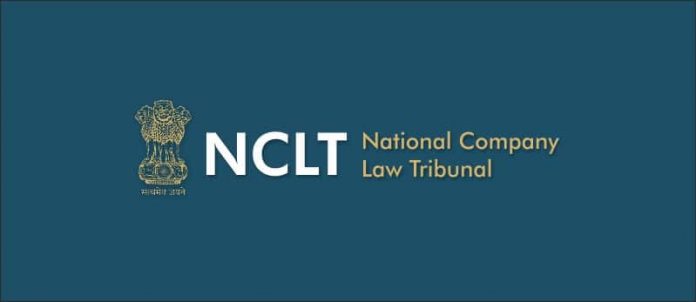This article is written by Pragya Bajpai who is pursuing a Certificate Course in National Company Law Tribunal (NCLT) Litigation from LawSikho.
Table of Contents
Introduction
This article discusses the procedure of filing an appeal before the National Company Law Appellate Tribunal (“NCLAT”) against the order of the adjudicating authority and the time period within which such an appeal is preferred before tribunal and the consequences in case of the delay exhibited in filing of appeal. These stated aspects of filing appeals against the order of National Company Law Tribunal (“NCLT”) are explained in the light of relevant provisions of Companies Act, 2013 (“Act”) and important judgments of the Court.
Provision relating to appeal against the order of adjudicating authority
Section 421 of the Act lays down the mechanism for preferring appeal against the order of the Adjudicating Authority (NCLT) to the NCLAT. The provision reads as follows:
Section 421. Appeal from orders of Tribunals
(1) Any person aggrieved by an order of the Tribunal may prefer an appeal to the Appellate Tribunal.
(2) No appeal shall lie to the Appellate Tribunal from an order made by the Tribunal with the consent of parties.
(3) Every appeal under sub-section (1) shall be filed within a period of forty-five days from the date on which a copy of the order of the Tribunal is made available to the person aggrieved and shall be in such form, and accompanied by such fees, as may be prescribed:
Provided that the Appellate Tribunal may entertain an appeal after the expiry of the said period of forty-five days from the date aforesaid, but within a further period not exceeding forty-five days, if it is satisfied that the appellant was prevented by sufficient cause from filing the appeal within that period.
(4) On the receipt of an appeal under sub-section (1), the Appellate Tribunal shall, after giving the parties to the appeal a reasonable opportunity of being heard, pass such orders thereon as it thinks fit, confirming, modifying or setting aside the order appealed against.
(5) The Appellate Tribunal shall send a copy of every order made by it to the Tribunal and the parties to appeal.
Limitation for filing an appeal
Let’s discuss the period of limitation in the light of Section 421(3) and Section 433 of the Companies Act, 2013 and Section 5 of The Limitation Act, 1963 and the judgement in the case of Bengal Chemists and Druggist Association Vs Kalyan Chowdhury.
- Bengal Chemists and Druggist Association Vs Kalyan Chowdhury
Herein an appeal against an order of NCLT dated 31/07/2017 was held non maintainable by the Appellate Tribunal by application of Section 421(3) of the Act as the appeal was filed 9 days after the expiry of the period of limitation stated under the section. The counsel in the present case raised the contention of the applicability of Section 433 of the Act read with Section 5 of the Limitation Act,1963 to condone the delay for a period that is beyond 90 days.
The judgement addresses the issue of scope and applicability of Section 421(3) and Section 433 of the Act in determining the period of limitation for filing appeal before the Appellate Tribunal.
The two periods of limitation as given under Section 421(3) and its proviso can be distinguished as follows:
- An initial period of 45 days from the day of receiving the certified copy of the order of NCLT, and
- another 45 days of period to file an appeal against the order of NCLT, only on the discretion of the Appellate Authority on finding that the appellate was prevented from sufficient cause from filing appeal within the initial 45 days.
On the other hand, Section 433 of the Act provides application of Limitation Act, 1963, as far as may be possible to proceedings or appeals before the NCLT or NCLAT.
The judgment held application of Section 433 to the present case inapplicable because the provisions of Limitation Act, 1963 apply only ‘as far as may be’ i.e. to be followed to the extent possible and since the proviso to section 421(3) contains a special provision including an “extended period of limitation”, provisions of the Limitation Act will not apply hereunder.
Also the period of limitation under the proviso of Section 421(3) would be rendered ineffective if the argument pertaining to the application of Section 433 for condoning the delay even beyond “the extended period of limitation” is accepted. The proviso of Section 421(3) is a peremptory provision providing a second time limit of 45 days beyond which the delay may not be condoned if sufficient cause for the same is not found by the Appellate Tribunal.
The judgment also took note of the judgement of Chhattisgarh SEB v. Central Electricity Regulatory Commission wherein Section 5 of the Limitation Act was held inapplicable against Section 125 of the Electricity Act, 2003, having a similar language to that of Section 421(3). Similar to Section 421(3), the proviso of Section 125 by the expression “within a further period not exceeding 60 days” prescribes the outer limit for filing an appeal not beyond 120 days. Therefore, Section 5 of the Limitation Act, 1963 cannot be applied to the case and consequently, the appeal filed against the order of the Tribunal after more than 120 days was held not maintainable.
The same judgement was reiterated by the Supreme Court in ONGC v. Gujarat Energy Transmission Corporation Limited, (2017 (5) SCC 42 at Para 5).
Delay in filing an appeal due to sufficient cause
As discussed earlier, proviso to section 421(3) of the Act deals with condonation of delay of appeal on the discretion of appellate tribunal finding sufficient cause that prevented the appellant from filing the appeal.
Post-Covid world has brought in various changes in the legal system of the country including changes pertaining to the limitation period for filing of petitions, applications, suits, appeals and of all other such proceedings. The Supreme Court order dated 23.02.2020 addresses the issue pertaining to the limitation period by extending the period of limitation for filing of cases, appeals etc.
The judgement of Sagufa Ahmed & Ors. v. Upper Assam Plywood Products Pvt. Ltd. & Ors., specifies the principle applied by the Limitation Act for condoning the delay in filing appeals before the court beyond the period of limitation and also analyses the predicament of the Supreme Court order.
In the present case, the appellate made an appeal on 20.07.2020 against the order of NCLT Guwahati for winding up of the company, dated 25.10.2019, along with an application requesting condonation of delay owing reasons to the delay occurred in receiving the certified copy of the orders and the lockdown situation in the country post covid. The appellate applied for the certified copy on 22.11. 2019 as per the copy of the application and the order was received by them on 19.12.2019. On 04.08.2020, both the appeal and application was dismissed by the NCLAT on grounds stating that the tribunal has no power to condone the delay made beyond 45 days.
The appellate contended that the Appellate Tribunal miscalculated the period of limitation from the date of the order of NCLT in accordance with Section 421(3) of the Act and the Supreme Court order extending the period of limitation for filing and proceedings with effect from 15th March, 2020.
In context to the above raised contentions, the Supreme Court judgement clarifies questions in relation to computation of the period of limitation.
As per the provisions of Section 421(3) the period to file appeal expires 45 days from the day of receiving certified copy of the orders. In the present case, the appellate did not avail for a free certified copy of the order from the tribunal as mentioned under Section 420(3) of the Act and Rule 50 of the NCLT Rules, 2016 and they themselves applied for a certified copy of the order after 27 days of the pronouncement of the order. Therefore, the time period for filing an appeal against the order will start running from the day they received the certified copy of the order i.e. 19.12.2019 and the same shall expire after 45 days i.e. 2.02.2020.
In accordance with the facts of the case, the appellate filed for appeal before the tribunal on 20.07.2020 whereunder even the further period of limitation provided at the discretion of the Appellate Tribunal under the proviso of Section 421(3) had expired i.e. on 18.03.2020. Also, the lockdown was imposed on 24.03.2020 therefore, the appellate had no reason to delay the filing of appeal 18.03.2020 onwards.
Lastly, clarifying the second contention raised by the appellate concerning condonation of delay owing to the Supreme Court order dated 23.03.2020 in Suo Motu Writ Petition (Civil) No. 3 of 2020 as per which the court held that the appellate cannot take refuge of this order because the order only extends the period of limitation prescribed under the Aat and does not extend the “further period” up to which the delay can be condoned by the tribunal at its own discretion.
The law of limitation strives on the latin maxim, ‘Vigilantibus Non Dormientibus Jura Subveniunt’ meaning “Law will help those who are vigilant about their rights and not those who sleep over them”. Therefore, the appellate cannot claim the benefit of the order because the delay made by the appellate was way beyond the prescribed period of limitation.
Explaining further the “period of limitation” with reference to Section 10(1) of General Clause Act, 1897 and Section 4(1) of the Limitation Act, 1963 we note the consequences of delay made in filing of appeal or application before the court when the last day of the prescribed period falls on the day when the court is closed shall extend only to the next day when the court reopens.
To construe the meaning of the term “prescribed period”, it was referred to the judgement of Assam Urban Water Supply and Sewerage Board v. Subash Projects and Marketing Limited. Section 2(j) of the Limitation Act, 1963 defines the term as:
2(j) ‘period of limitation’ which means the period of limitation prescribed for any suit, appeal or application by the Schedule, and ‘prescribed period’ means the period of limitation computed in accordance with the provisions of this Act.
Therefore, the prescribed period refers to the “period of limitation” and not the “further period” up to which the delay can be condoned.
Conclusion
From the above discussion including the provisions and judgements relating to the condonation of delay where the appeal was filed before the Appellate Tribunal after expiration of the period of limitation, the tribunal is empowered with a discretion to condone the delay for a “further period” of 45 days and not beyond that period. And owing to the lockdown orders, the Supreme Court order to extend the limitation period shall apply only to the “period of limitation” provided under Section 421(3).
Courts have also held that the litigant while applying for condonation of delay must be vigilant about their rights i.e. they should act in accordance to their rights as available to them under the provisions of the Companies Act, 2013 and Limitation Act, 1963.
References
- https://indiankanoon.org/doc/56305508/
- https://main.sci.gov.in/supremecourt/2020/17038/17038_2020_31_1501_23998_Judgement_18-Sep-2020.pdf
- http://ebook.mca.gov.in/default.aspx
Students of Lawsikho courses regularly produce writing assignments and work on practical exercises as a part of their coursework and develop themselves in real-life practical skill.
LawSikho has created a telegram group for exchanging legal knowledge, referrals and various opportunities. You can click on this link and join:
 Serato DJ Crack 2025Serato DJ PRO Crack
Serato DJ Crack 2025Serato DJ PRO Crack











 Allow notifications
Allow notifications


